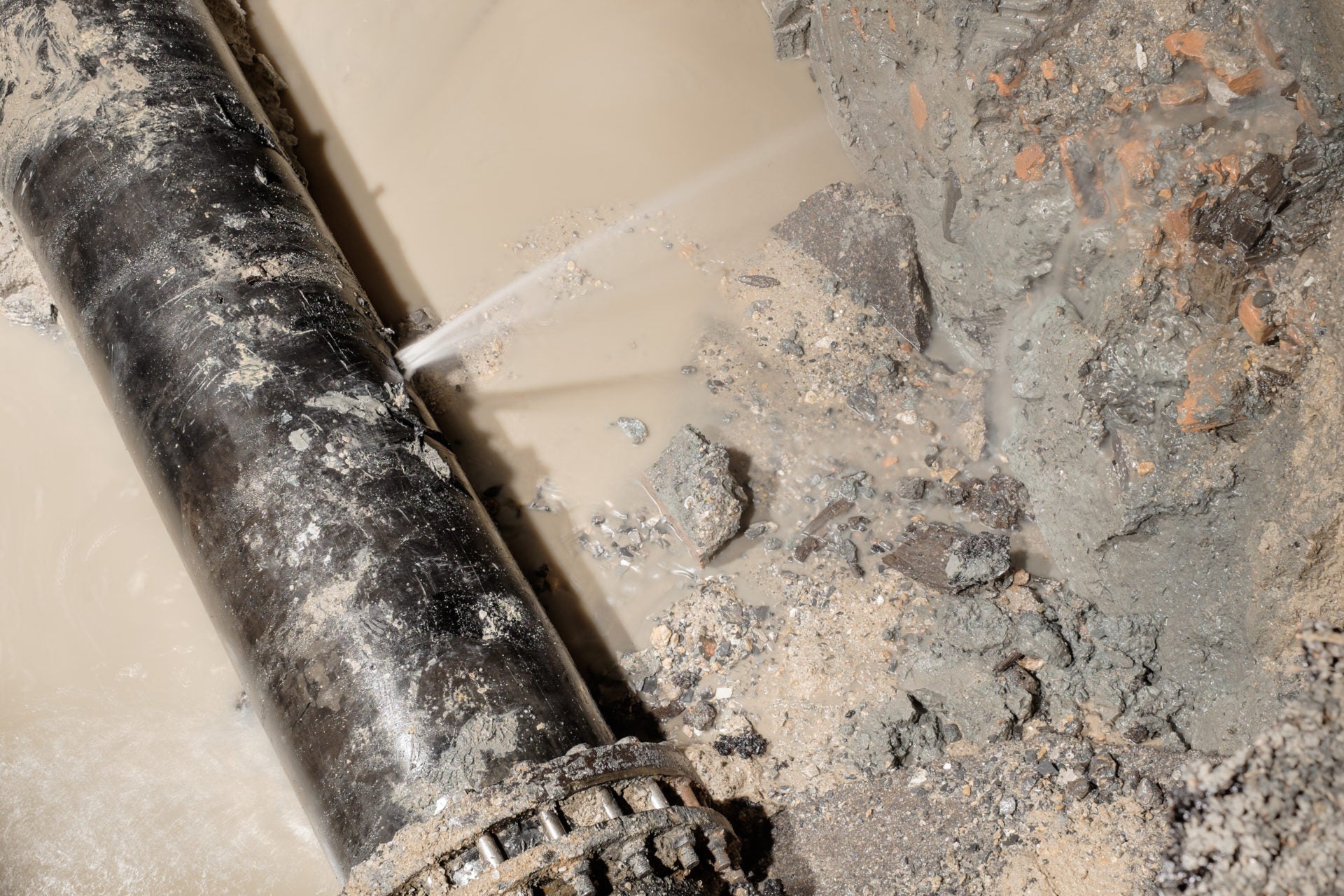
Vodafone and South East Water have launched a pilot that will see internet of things (IoT) sensors placed on underground mains water pipes to ‘listen’ for water escaping and send immediate alerts in the event of a leak.
The trial is now underway in Kent, the UK, and will run for a year. Internet-connected devices installed in the water mains network will communicate via a narrowband frequency, a type of radio wave that carries smaller packets of information.
Such frequencies are well suited for networks of IoT devices as they often only need to send small amounts of data. Compared to wideband or cellular frequencies, narrowband-IoT (NB-IoT) has the advantage of greater coverage and lower power consumption.
Batteries therefore last much longer – up to ten years – reducing maintenance and installation costs.
The trial will see a network of specialist water meters, sensors and acoustic loggers collect data on the health of the pipe network. The acoustic loggers consist of small microphones that detect sounds indicating a water leak. Data will be transmitted across the system via Vodafone’s NB-IoT network, providing a precise location of a leak and an overview of the water network’s overall health.
IoT water leak detection could become the norm
Dr Simon Earl, South East Water’s Operations director, said:
How well do you really know your competitors?
Access the most comprehensive Company Profiles on the market, powered by GlobalData. Save hours of research. Gain competitive edge.

Thank you!
Your download email will arrive shortly
Not ready to buy yet? Download a free sample
We are confident about the unique quality of our Company Profiles. However, we want you to make the most beneficial decision for your business, so we offer a free sample that you can download by submitting the below form
By GlobalData“This trial is likely to revolutionise how we detect and prevent water leaks. The solution has the potential to alert us to the smallest leak – in either our or our customers’ pipes – as soon as it occurs; and could even enable us to predict and prevent pipeline failure before it happens.
“This has the potential to reduce the water we take from the environment, further minimise interruptions to supply and increase the resilience of the service we provide to our customers.”
The pilot is believed to be the first time NB-IoT has been used as part of a smart water network. If successful, it may pave the way for wider adoption. It comes as Ofwat, the UK’s water regulator, is requiring water companies to reduce water leakage by 15% by 2025 to combat water shortages expected to threaten England within 25 years.
Anne Sheehan, director, Vodafone Business, said:
“This is a really exciting project. NB-IoT technology has the power to transform the utilities sector. It provides a more accurate way of identifying and preventing leaks, helping companies like South East Water meet important regulatory and environmental standards. It is a perfect example of how technology can be used to create a more sustainable future and manage what is an increasingly precious commodity.”
Major water leaks can be particularly problematic in hot weather, as demonstrated by a burst water main in Bristol today that left thousands without water.
Read more: Is the leaky pipe a thing of the past? Machine learning halves time spent finding water leaks







